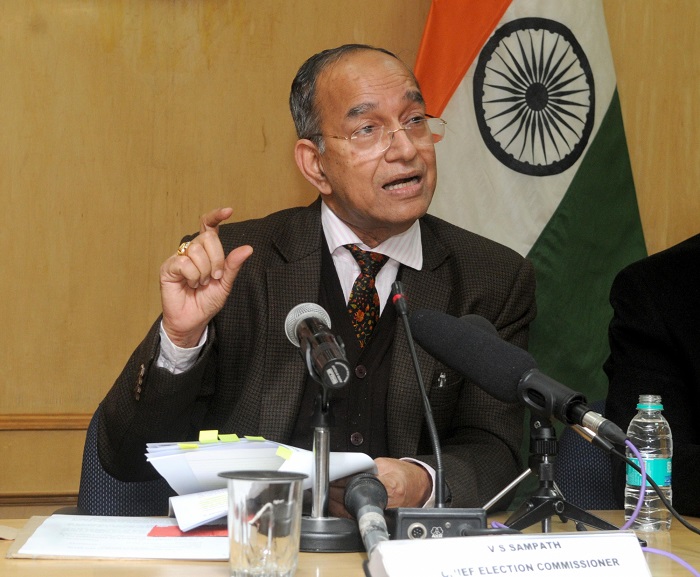New Delhi, Former Chief Election Commissioner (CEC) V.S. Sampath said on Monday that the electoral bonds scheme introduced by the NDA government has failed on the transparency front though it ensured that black money was not used for election funding.
Sampath told IANS that the scheme did not ensure a level-playing field between the opposition and the government and that people were entitled to know which corporate was contributing to which party.
The former CEC said that there were two aspects to election funding — black money and transparency.
He said the government’s claim that the electoral bonds scheme curtailed black money was justified since people could contribute only white money now.
“Bond money cannot be black money, it has to be white only,” he said.
However, Sampath said that transparency was equally, if not more important.
“People are entitled to know which corporate is contributing to which party. This is not something which can be washed under the carpet. So in the transparency front, the scheme fails,” the former CEC said.
He said that corporates could be contributing to the party in power at the Centre and in the states.
“People are entitled to know whether there is any linkage to decisions taken by those governments and the contributions made. There should certainly be transparency, which is equally important,” he said.
“There is one more thing. In election matters, there is something called a level-playing field. Now the only person who knows the corporate contributors is the State Bank of India (SBI). And who controls the SBI? They would know the contributions made by the corporates to various political parties while nobody else would know. But is it a fair system,” he asked.
He said if the government says there should be anonymity, it should be anonymous for the government too.
“How are you (government) different? You are also a political party. Why should you know the contributions made to others when the others don’t know the contributions made to you? It looks weak from all angles,” Sampath said.
The Supreme Court had last week declined to grant an interim stay on the operation of electoral bonds scheme, and directed the petitioner NGO objecting the scheme to approach the court with an appropriate application.
A bench headed by Chief Justice Ranjan Gogoi said that the matter required a detailed hearing and posted it for the next hearing on April 10.
The Association of Democratic Reforms (ADR) had approached the court alleging that there was a strong possibility that thousands of crores of rupees were channelled to different political parties under the garb of anonymity.
The ADR filed an application in the apex court seeking an immediate stay on the electoral bonds scheme, which was introduced by the National Democratic Alliance (NDA) government in January 2018.
The apex court is in the process of hearing a batch of petitions challenging the essence of the scheme and seeking a stay on it. Apart from the ADR, the other petitioners include Sitaram Yechury, General Secretary of the Communist Party of India-Marxist (CPI-M).
The electoral bonds are a monetary instrument that could be bought either by citizens or corporate groups from the State Bank of India. Later, these bonds can be given to any political party of choice, which can redeem them to generate funds. Under the scheme, the name of the donor is known only to the bank.
The Centre had filed an affidavit in the top court defending the bonds. The affidavit said that the bonds were certainly a concrete step in introducing accountability and transparency in the entire election process.
The Election Commission, however, had said that the electoral bonds would affect transparency in political funding and make political donations opaque.










